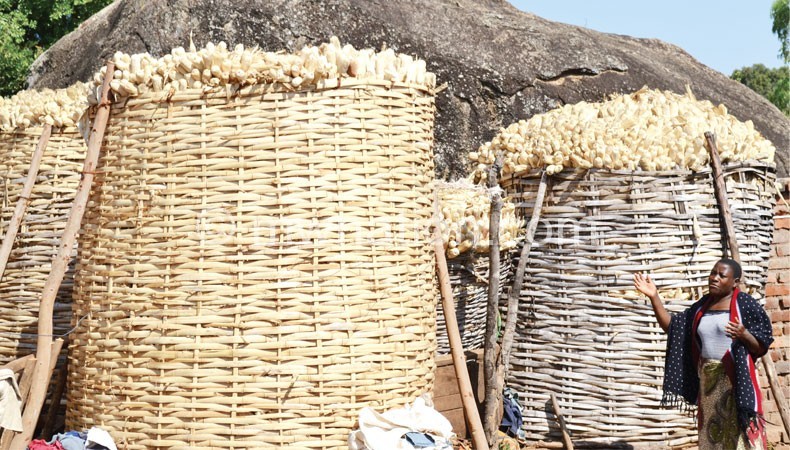Fisp Crisis: Most parts yet to start receiving the inputs
There is growing anxiety that the 2014/2015 Farm Input Subsidy Programme (Fisp) will be a repeat of previous programmes that were marred by high-level abuse and contracts’ contraventions.
With just a few weeks remaining before smallholder farmers start planting maize, The Nation can reveal that most parts of the country have not yet started receiving the subsidised inputs.

The development has created discomfort among farmers and agriculturalists who fear the continued delay may be catastrophic to next year’s harvest and hurt the economy.
The Nation’s
investigations conducted this week in all the country’s eight agricultural development divisions (ADDs)—Karonga, Mzuzu, Kasungu, Lilongwe, Salima, Blantyre, Machinga and Ng’abu (Shire Valley)—revealed a cheerless progress of the input distribution exercise.
While some districts have started getting partial dispatches of the subsidised fertiliser, others are yet to receive any with agricultural officials now fidgeting.
For instance, Karonga, which has 22 900 beneficiaries, as of yesterday [Tuesday], had just received 6 288 bags of fertiliser, which is targeted for 10 markets.
“But this is just on paper. We have not yet gone round the markets to validate whether the fertiliser has indeed been dispatched or not. We were told this dispatch was supposed to be made on October 21 and 22,” said a source at Karonga ADD.
Sources at Ministry of Agriculture headquarters said the programme is facing several challenges and warned that unless government swiftly addresses the issues, the 2014/15 programme may be the worst ever.
Some of the challenges, according to the sources, include late approval of the national budget that resulted in late procurement of fertilisers and also affected other processes such as timely transportation.
A case in point is the Smallholder Farmers Fertiliser Revolving Fund (SFFRFM), a government agency appointed to handle Fisp’s fertiliser component, which announced names of successful companies to supply the 150 000 tonnage of fertiliser required for this growing season just two weeks ago.
According to SFFRFM chief executive officer Andrew Kalinde, 77 503 tonnes of subsidised fertiliser will be supplied by different companies that won the contracts, 42 497 will come from Malawi Rural Development Fund (Mardef) and Farm Input Loan Programme (Filp) stocks while SFFRFM will provide 30 000 tonnes.
Minister of Agriculture, Irrigation and Water Development Allan Chiyembekeza said last week smallholder farmers will have to wait for 45 days before the inputs and coupons are distributed nationwide.
The ministry is yet to start coupon distribution, but spokesperson Sara Chowe said last week beneficiaries were already identified.
Civil Society Agriculture Network (Cisanet) and Farmers Union of Malawi (FUM), key agricultural players, have described the development as “a disaster in making”.
FUM president Alfred Kapichira Banda said the delay to distribute the input has multiple implications to farmers which eventually impact, on the national yield.
Weak national yield could impact on the country’s economic growth targets given that agriculture accounts for more than 30 percent of gross domestic product (GDP).
The average forecast GDP growth is 5.4 percent in 2014.
And with food contributing 50 percent to the consumer price index (CPI), low harvests—especially for maize—could cause an inflation spike.
Government expects inflation to decline from the 2013 levels of 27.3 percent to 19.4 percent and 9.9 percent in 2014 and 2015, respectively on assumptions that there will be increases in agricultural output and prudent monetary policies.
But with Malawi’s inflation rate sharply reversing course in August—rising to 24.5 percent from 22.3 percent in July after seven months of gradual decline—prospects of a mediocre crop output could worsen the general rise in prices, what with a kwacha that is currently collapsing against major trading partners, especially the green buck.
Higher inflation may also mean over-the-roof interest rates as monetary authorities may keep the cost of borrowing expensive to curb money supply—all these could further suppress economic activity and deepen poverty levels.
Cisanet executive director Tamani Nkhono said the delays in the distribution will also force farmers to sell their coupons as they will become valueless to them.
When contacted for comment on the challenges facing this year’s programme, Fisp coordinator in the Agriculture Ministry Christine Mtambo referred The Nation to Chowe, who had not yet responded to our questionnaire as we went to press.





